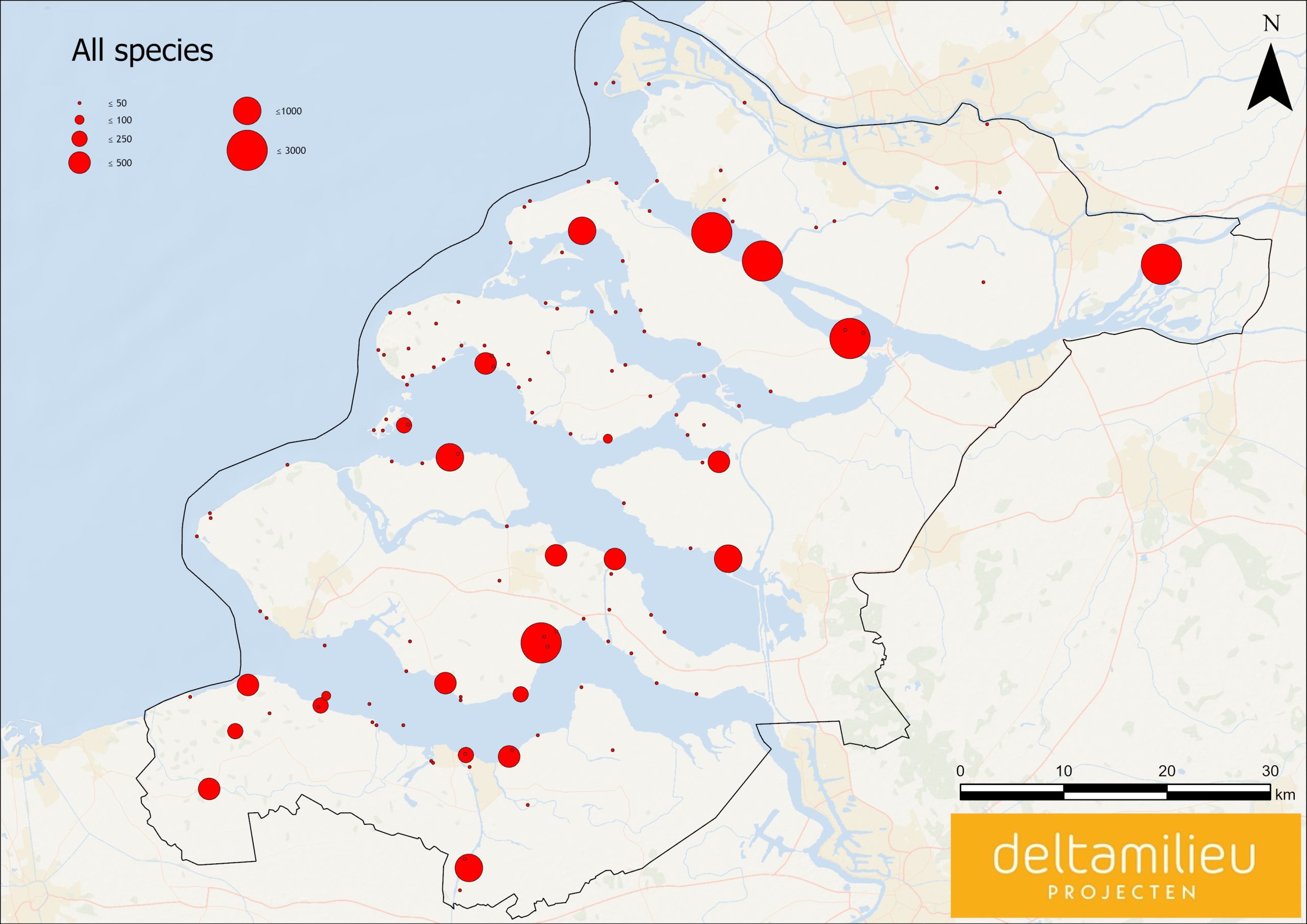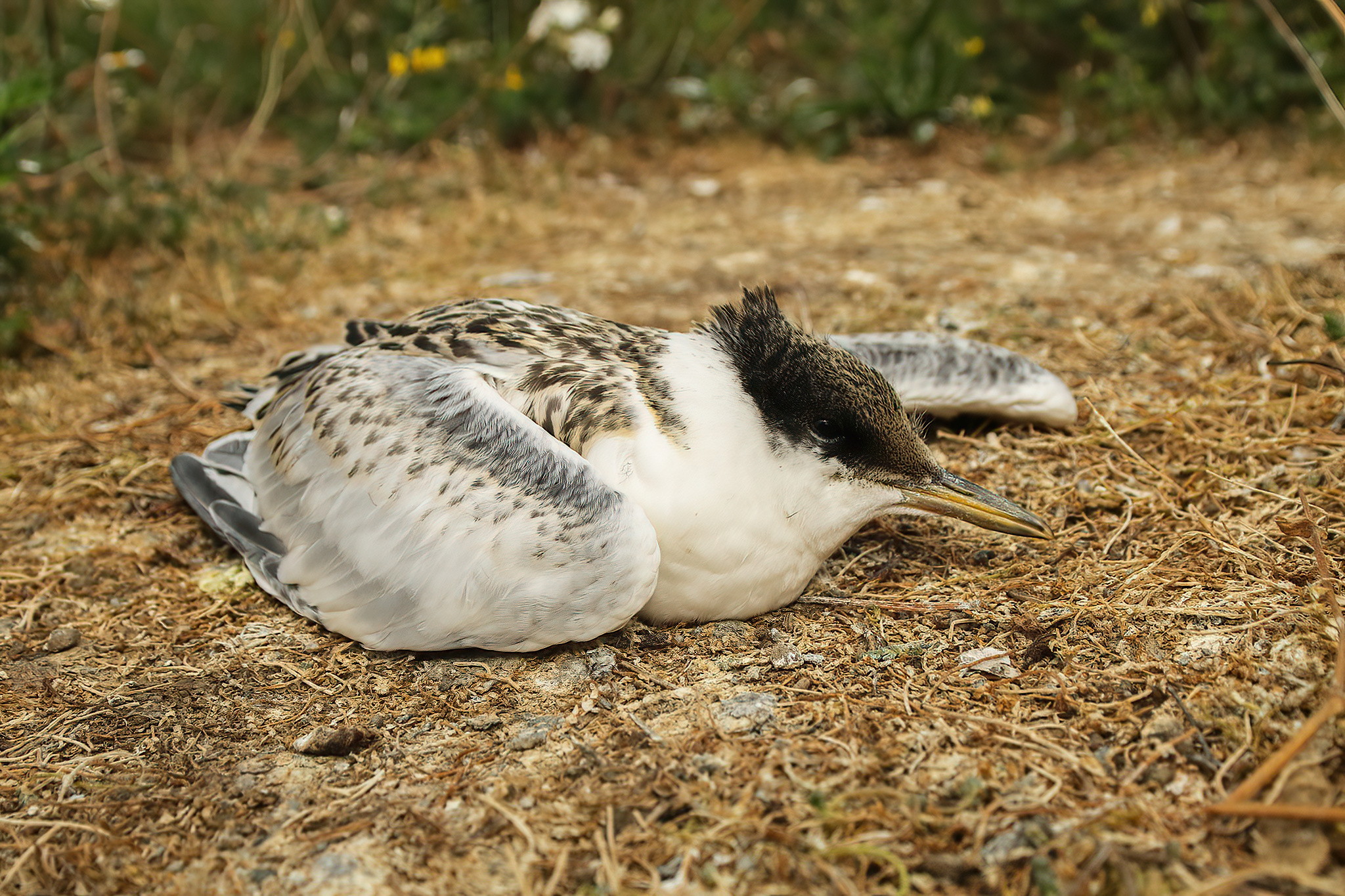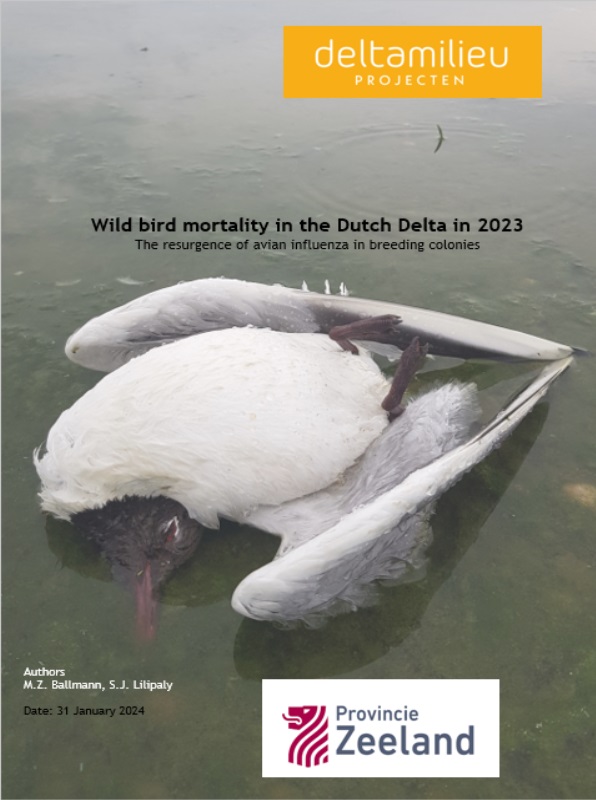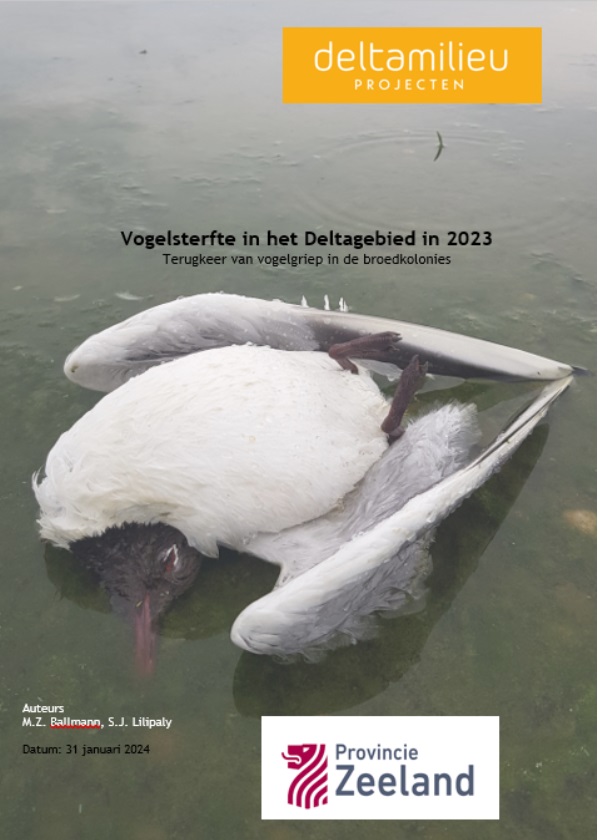Colonial breeding birds suffered great losses caused by highly pathogenic avian influenza the second year in a row. In the Dutch Delta alone, more than 17 400 dead birds were collected between the end of February and beginning of August. The most impacted species were terns and gulls. Consecutive poor breeding seasons and high adult mortality may take several years for the populations to recover.
Resurgence of avian influenza in breeding colonies
In 2022, highly pathogenic avian influenza H5N1 caused an unprecedented wave of mass mortality among colonial seabirds, particularly affecting sandwich terns. Although the case numbers declined after the breeding season by the dispersal and migration of the most impacted species, the virus persisted through the winter months, causing sporadic outbreaks among black-headed gulls. During the spring of 2023, the virus reemerged, killing thousands of birds. Black-headed gulls suffered the highest losses with nearly 12 000 fatalities in the Dutch Delta alone, followed by Mediterranean gulls, sandwich and common terns. Remarkably, the most vulnerable age group of these species were the nearly fledged juveniles.

Overview of locations where dead birds were found in the Dutch Delta in the period between February and August – 2023
Glimmer of hope
Sandwich terns were the primary victims in 2022, losing over 20% of the adult breeding birds in the Dutch colonies within just a few weeks. The surviving adults either abandoned the colonies, dispersed at sea or made a second breeding attempt elsewhere. Did these survivors develop sufficient immunity? What will be the true impact on the population? In 2023, however, the virus was again killing thousands of sandwich tern chicks, the adult mortality remained low. Serology studies showed that a substantial proportion (25-44%) of the adult population had developed antibodies against avian influenza prior to their return to the breeding grounds. How long would this immunity last and would they be protected if a new variant emerges remains a question for the future. Despite the high mortality and low seroprevalence among the chicks, survivors are being reported along the European and African coasts.

Sandwich tern dying from avian flu – july 2023, Bliek
Challenges
Avian influenza has become endemic in Europe, posing a constant threat to migratory birds as the virus is also present in wintering areas. This presents challenges for nature conservationists, site managers, researchers and increasingly, for public health officials. Unfortunately, funding for outbreak management, surveillance, research, and education programs remains very limited. While vaccination may soon be available for poultry, prevention measures applicable in a wildlife setting are not yet in sight. Therefore, populations must be supported in every other possible manner.
Collaboration
The challenges brought professionals and volunteers from several different disciplines together. Local wildlife organizations and local government (Provincie Zeeland, Veiligheids regio Zeeland, Stichting Het Zeeuwse Landschap, Natuurmonumenten and Staatsbosbeheer) contributed to the practical management of the outbreak, while avian influenza surveillance activities were carried out in collaboration with Erasmus MC and Vogeltrekstation.
Actuele berichten
Gepubliceerd op: 22 maart 2024
Kustbroedvogels leden voor het tweede jaar op rij grote verliezen als gevolg van hoogpathogene vogelgriep. Alleen al in de Nederlandse Delta werden tu…
Gepubliceerd op: 12 maart 2024
Zeehonden waren afgelopen eeuw in Nederland bijna uitgestorven door jacht en gifstoffen in het zeewater. Uitbanning van de jacht en betere controle op…
Gepubliceerd op: 15 december 2023
Het gaat het niet goed met scholeksters in Zeeland. Dat is de conclusie van het onderzoek dat we uit mochten voeren in het kader van het ‘Jaar van de…


